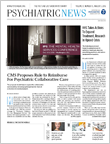This article is the second in a series designed to facilitate our adaptation to modern digital media by helping us maintain our professionalism and boundaries as we venture into these new social territories. Specifically, this article addresses ethical concerns when using Skype, FaceTime, and similar video technology applications to communicate with patients.
Telepsychiatry uses a closed network established between two health facilities, such as an academic medical center and a rural clinic or correctional facility. It has enormous advantages for increasing access to expert care and includes built-in protections to safeguard confidentiality and uphold the standard of care. Skype and similar technology may be appealing as a way to expand telemedicine to private practices and patients’ homes. It offers more convenient access to care for patients who live in remote locations or have limited mobility, using technology that many people already possess in their desktops, laptops, tablets, or smartphones. Increasing access to care promotes the ethical principle of justice, in line with Section 9 of APA’s Principles of Medical Ethics with Annotations Especially Applicable to Psychiatry, which states, “A physician shall support access to medical care for all people.”
Before deciding to practice psychiatry via Skype, you must weigh the potential risks associated with this technology. Four major areas of concern are confidentiality, maintenance of the standard of care, safety, and regulatory compliance.
The confidentiality of a Skype call can be compromised in several ways. Skype calls are encrypted, so they are not easily hacked, but it is theoretically possible for a hacker to gain access to a device’s video camera. Of more concern is the ability of either party on a Skype call to record the conversation without the other person’s knowledge or consent. This is illegal, but it could still occur. An additional concern is the potential loss of confidentiality if a third party enters the room during a Skype conversation between a psychiatrist and a patient. If you do choose to Skype with patients, the potential loss of confidentiality should be a part of your informed consent discussion.
While Skype enhances access to care, it risks compromising the standard of care. Admittedly, most of the psychiatric exam and treatment is a visual and verbal interaction. Nevertheless, there are elements of the exam, such as taking vital signs and checking for cogwheeling or rigidity, that are impossible to do over Skype. In addition, some elements of an assessment, such as examination of intention or resting tremors, may be difficult to do using video technology because of the graininess of the image. These portions of the exam may be performed by a health care provider at the patient’s location in formal telemedicine settings, but there is typically no health care provider in the patient’s home during a Skype session. This drawback could be mitigated if the patient came to your office for an in-person exam once a quarter.
Another concern is patient safety. If a patient in your office reveals acute suicidal or homicidal intent, you can call 911 and directly monitor the patient until authorities arrive to transport the patient to an emergency room. With Skype, the patient can hang up and leave or self-harm before help arrives. This risk has always existed with phone calls between providers and patients, but phone calls are typically a form of communication used between office visits and not the primary mode of clinical encounter. Before embarking on Skype-based treatment, you should assess your comfort with these safety risks.
Regulatory considerations for Skype-based treatment include reimbursement and licensing. If you are billing insurance for a Skype encounter, it is essential that you comply with CMS eligibility criteria. These are detailed
here. The patient must be located at an eligible site, which is any one of several defined health care facilities, but not the patient’s home. If the patient is not using insurance to pay for treatment, these restrictions do not apply.
An additional regulatory hurdle is the requirement that health care providers be licensed in the state in which medical treatment occurs, defined as the state where the patient is located. If the patient is in a state other than the one(s) in which you are licensed, it is crucial that you check with the medical licensing agency in the state(s) in which you are licensed as well as in the state in which the patient is located to ensure that you are not practicing medicine without a license.
In summary, expanding access to care by using Skype and similar video communication technology upholds the ethical principle of justice and the moral virtue of providing care to all. Fulfilling this ethics principle must be weighed against potential compromises to confidentiality, standard of care, patient safety, and regulatory compliance. Establishing policies and procedures for Skype-based treatment in your practice is one way to mitigate the risks and maximize the benefits. ■

